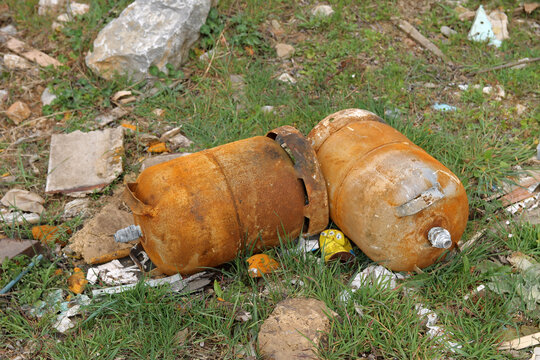From Tanks to Toxins: Mastering Hazardous Waste Management

Propane companies play a critical role in keeping communities fueled, but handling hazardous waste is a necessary responsibility of theirs that requires careful management. This guide covers essential practices for managing hazardous waste effectively, from identifying waste types to safe storage and disposal. Following these protocols will assist propane companies in staying compliant and protecting the environment while also prioritizing safety.
Identifying Hazardous Waste
To manage hazardous waste safely, you first need to identify it correctly. Hazardous waste includes any materials that are flammable, toxic, corrosive, or reactive. For propane companies, this can consist of expired chemicals, old propane tanks, contaminated soil, or even equipment that may have hazardous residues. Knowing what qualifies as hazardous waste is essential to correctly handling and disposing of it.
Storing Hazardous Waste
Once hazardous waste is identified, storing it safely is the next priority. Proper storage helps prevent leaks, spills, and contamination. Always use designated containers that are clearly labeled and made of materials suitable for the type of waste being stored.
Ensure that storage areas are secure, well-ventilated, and away from other flammable or reactive materials in order to prevent accidents. Regularly inspect storage containers to catch any signs of wear or leaks early on, which can help avoid costly incidents.
Transporting Hazardous Waste
When hazardous waste needs to be transported, whether to a disposal facility or a treatment center, it’s essential to follow specific safety guidelines. Use certified containers and secure the waste properly to prevent spills during transit. All transportation must follow regulations set by local, state, and federal guidelines. Ensuring proper handling during transport helps protect both the driver and the environment, reducing the risk of accidents or spills.
Working with Certified Disposal Facilities
Propane companies should only work with certified disposal facilities for hazardous waste. These facilities are equipped to safely handle, treat, and dispose of dangerous materials, following strict environmental standards. Partnering with certified facilities helps ensure your hazardous waste is managed responsibly and reduces your employees’ risk and your company’s liability.
Training Employees on Hazardous Waste Procedures
Employee training is a critical component of hazardous waste management. Your team should be familiar with correctly identifying, handling, storing, and transporting hazardous waste. Proper training not only prevents accidents but also keeps employees safe. Employees who understand the risks and responsibilities involved with hazardous materials will be more prepared to follow safety protocols and respond to potential hazards effectively.
Keeping Records and Staying Compliant
Maintaining accurate records of your hazardous waste management is essential for compliance with environmental regulations. Documenting waste identification, storage, transport, and disposal details provides a clear record for regulatory inspections and audits. Propane companies can avoid fines, prove compliance, and commit to responsible waste management by keeping detailed records.
The Broader Benefits of Proper Waste Management
Carefully managing hazardous waste benefits propane companies in many ways. It protects employees, the community, and the environment from potential harm. Additionally, following proper procedures keeps companies compliant with regulations, reducing the risk of fines or legal issues. Effective hazardous waste management also builds a company’s positive reputation within the industry, demonstrating to customers that safety and environmental responsibility are their top priorities.
















